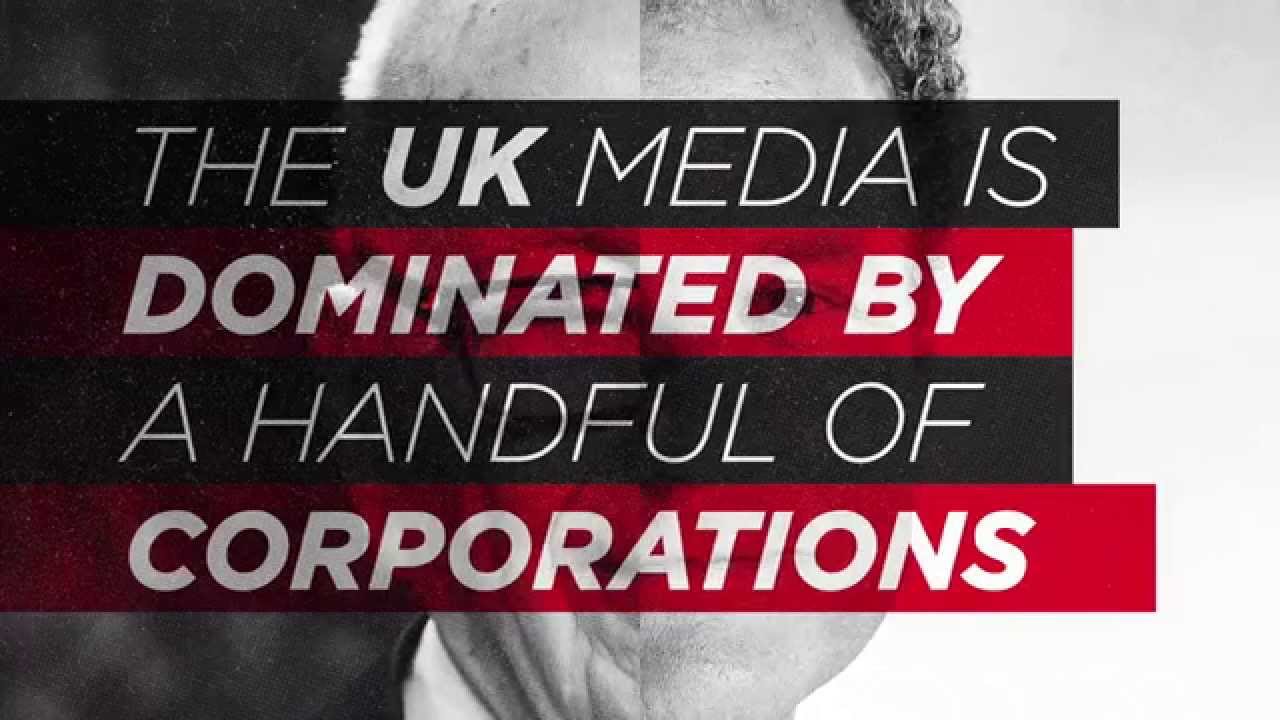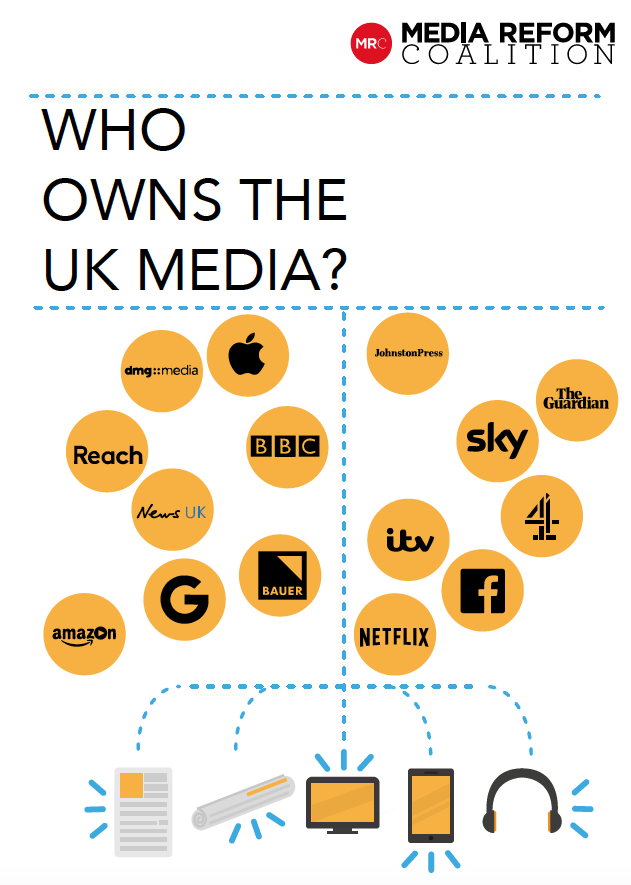
We produced our first comprehensive report on media ownership in the UK back in 2015 when we argued concentrated ownership was a significant problem for any modern democracy. Four years later, we have produced an updated version that suggests that, not only does concentrated ownership persist but that the problem may be getting worse.

This report shows that just three companies (News UK, Daily Mail Group and Reach) dominate 83% of the national newspaper market (up from 71% in 2015). When online readers are included, just five companies (News UK, Daily Mail Group, Reach, Guardian and Telegraph) dominate nearly 80% of the market, slightly up from our last report. In the area of local news, just five companies (Gannett, Johnston Press, Trinity Mirror, Tindle and Archant) account for 80% of titles (back in 2015, six companies had the same share). Two companies have 46% of all commercial local analogue radio stations and two-thirds of all commercial digital stations.
The digital landscape is hardly less concentrated. Google dominates search while popular apps like Instagram and WhatsApp are owned by Facebook, itself the most popular social media site. New, digital-only news sites have emerged as a significant force since our last report but these are overshadowed by the continuing grip of legacy news and, especially, national newspaper titles.
The BBC remains a powerful presence in online and broadcasting but its budget has been massively cut by the last two licence fee deals and its room for manoeuvre has been limited by commercial competition and political pressure to be mindful of its impact on the wider commercial market.
We believe that concentration in news and information markets in particular has reached endemic levels in the UK and that we urgently need effective remedies. Concentrated ownership creates conditions in which wealthy individuals and organisations can amass vast political and economic power and distort the media landscape to suit their interests. Urgent action is needed in order both to address high levels of concentration in particular media markets and to protect against further concentration in others.
We hope that this report will provide data and arguments that will be useful to all those who want to campaign for a more pluralistic media in which a genuine diversity of views, voices and opinions are aired.
To see the full report, click here.
For the executive summary, click here.
For all the data sheets, click here.
If you have questions or want a hard copy of the report, please email info@mediareform.org.uk